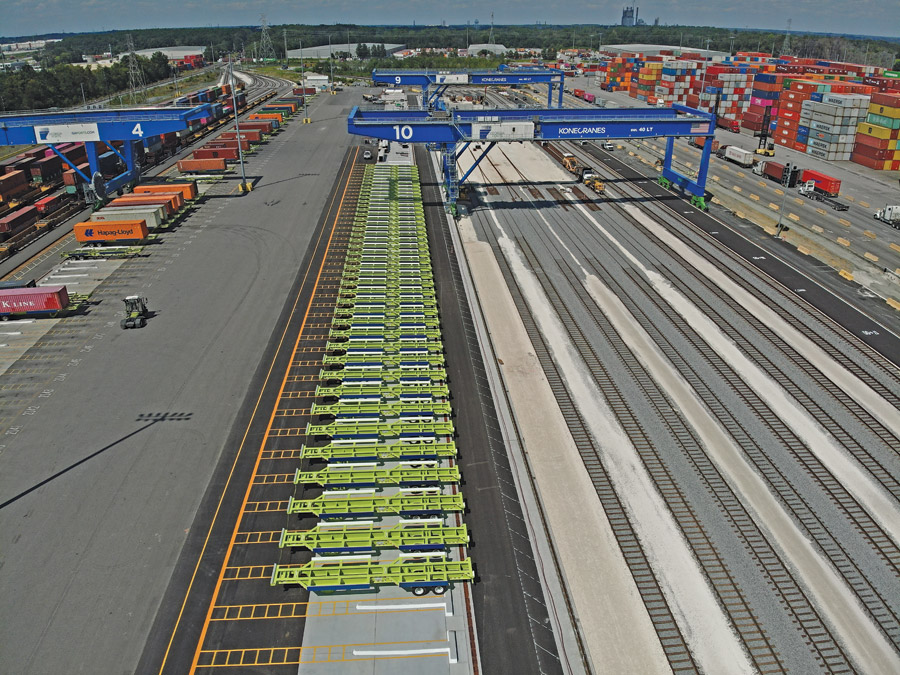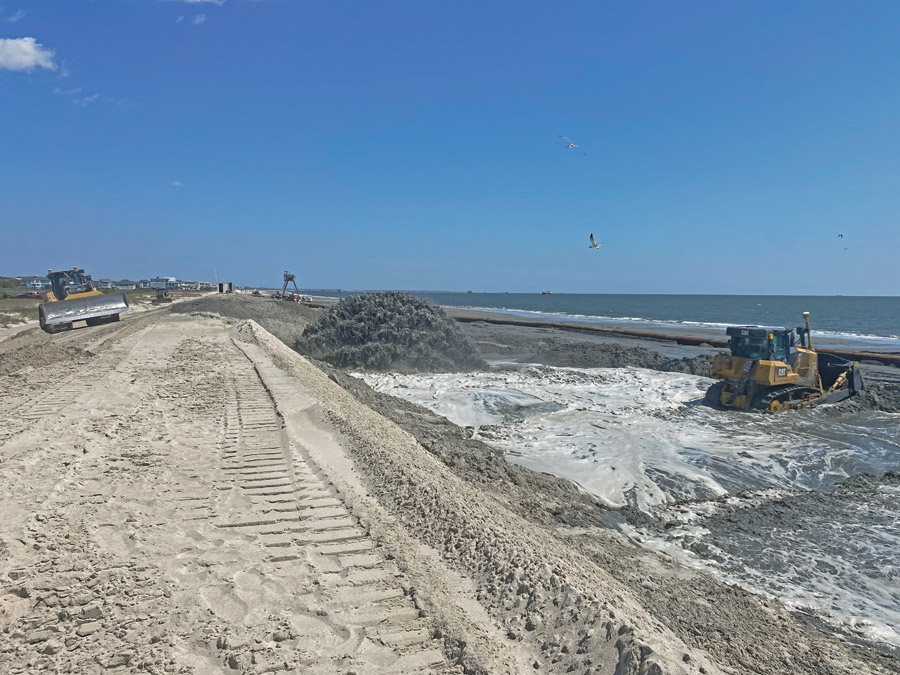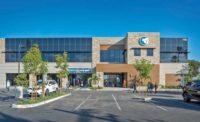In the 41 years since Long Beach, Calif.-based engineering firm Moffatt & Nichol made its first East Coast foray with the opening of an office in Raleigh, the firm has steadily and somewhat quietly established itself as a versatile resource for transportation-related design and consulting services in the Southeastern states.
Last year proved particularly pivotal for Moffatt & Nichol, with a 10% increase in regional revenue—to $53.4 million. The firm also boosted its backlog by 44% and grew in both staff and reach with the opening of a new office in West Palm Beach, Fla.—its 15th in the region.
Though Moffatt & Nichol may not rank among the region’s largest design players, Jeff Sparrow, who coordinates the firm’s East Coast operations, insists that numbers tell only part of the story.
“We’re not interested in being the biggest,” Sparrow says. “We like to think of ourselves as the best.”
Sparrow explains that the firm has focused on cultivating long-term partnerships with key clients in the region, helping them shape a vision for their respective futures and offering creative, yet practical infrastructure and engineering solutions to help them achieve their goals.
“We bring a very different perspective on what the right solution is, from stakeholder engagement through the design process and beyond,” Sparrow adds.
One example is the 4.3-mile design-build extension of the State Route 540 Triangle Expressway in Raleigh. As part of the design team for the North Carolina Dept. of Transportation project, Moffatt & Nichol engineered both the segment’s roadway and hydraulic designs, the latter including a stormwater management plan, intermediate construction phases for culvert installation, federal floodplain compliance and bridge scour computations.

Moffatt & Nichol worked with Georgia Ports Authority to compress facilities and combine railyards at the Port of Savannah.
Photo courtesy Georgia Ports Authority
Resilience in the Spotlight
Moffatt & Nichol’s approach is particularly helpful in a region where simply providing and maintaining transportation infrastructure to support the continual arrival of new residents and businesses is no longer enough. Those roads, bridges and other facilities must also withstand the accelerating effects of climate change. Already a leader in the discipline, Moffatt & Nichol’s recent acquisition of New Orleans-based resiliency specialist Waggoner & Ball will vastly increase the firm’s capabilities in the Southeast and nationwide.
Moffatt & Nichol is currently working with several South Florida communities on vulnerability assessments to determine resiliency options and advising communities along North Carolina’s Outer Banks on beach nourishment projects and other strategies to recover from increasingly erosive waves and preserve their tourism-based economies.
“Their people are seamless with ours, it’s just like they’re our employees. They’re key in helping us with storm repair and recovery.”
—Phillip Gainer, Secretary, Florida Dept. of Transportation District 3
Resiliency is also a critical need for the Florida Dept. of Transportation’s (FDOT) District 3, which spans 16 panhandle counties, and often takes the brunt of increasingly powerful hurricanes from the Gulf of Mexico. Since 2020, Moffatt & Nichol has served as one of the district’s two general engineering consultants, which are selected based on qualifications rather than bids, according to District 3 Secretary Phillip Gainer.
To fortify key highways such as coast-hugging U.S. Route 98 against future rounds of major storms, for example, Moffatt & Nichol introduced new erosion-control methods such as installing articulating concrete block system beneath the highway.
“We challenge them to bring these kinds of new technologies to us that we can use on our highways,” says Gainer, who also praises Moffatt & Nichol for stepping in after Hurricane Sally severely damaged the partially complete Pensacola Bay Bridge in fall 2020. The firm assisted FDOT crews with technical aspects of repairs as well as traffic, detours and other tasks, including in project management roles.
“Their people are seamless with ours, it’s just like they’re our employees,” Gainer says. “They’re key in helping us with storm repair and recovery.”
A Powerful Port Presence
Port infrastructure and operations services that have been a staple of Moffatt & Nichol’s services since the company’s founding in 1945 are being applied to help Southeast ports attract a larger share of East Coast bound maritime shipping traffic. For the past two decades, Moffatt & Nichol has served as one of two program managers for Georgia Ports Authority (GPA), helping guide projects to expand capacity and improve operational efficiency.
The latest major effort, the $220-million Mason Mega Rail Program at the Port of Savannah, reached substantial completion earlier this year. Under study for nearly a decade, the program originally sought a phased strategy to better utilize two intermodal facilities located on either side of the space-constrained Garden City Terminal and operated by different railroads. Moffatt & Nichol worked with GPA on a strategy to increase rail capacity at the terminal by compressing the existing facilities and combining the railyards into a single utility that can serve two railroads simultaneously.
“To us, they’re not only a design firm but also a stakeholder and partner, which you have to be to understand what we do day in and day out.”
—Chris Novack, Senior Director of Engineering and Facilities Maintenance, Georgia Ports Authority
The award of a $44-million federal FAST Act grant in 2016 not only accelerated the planning and construction process, but also added new elements such as 10 fully electric rail-mounted gantry (RMG) cranes and integrated more than 20 miles of new track in order to accommodate trains up to 10,000 ft in length.
Moffatt & Nichol project manager Dan Peavy says that a holistic approach was critical in shaping and advancing the program, as was early stakeholder involvement with a host of interests, particularly the two railroads.
“Because their long game is different from a port’s long game, it was critical to communicate what their role would be and what the expectations are in getting things done,” Peavy says.
Chris Novack, GPA’s senior director of engineering and facilities maintenance, agrees, adding that Moffatt & Nichol’s understanding of the port’s operations was crucial in implementing the program without disrupting existing operations.
“To us, they’re not only a design firm but also a stakeholder and partner, which you have to be to understand what we do day in and day out,” Novack says. “Without that perspective, there was no way they could complete the project.”
In addition to boosting the Port of Savannah’s capacity and efficiency, the project allows trains to be configured entirely on port property, eliminating a long-standing problem of having train-building activity extend into an adjacent community, closing at-grade crossings and blocking local roads for extended periods.
“That’s a huge social improvement for the community,” Novack says. “It was the right thing to do, and thanks to good planning, we were able to make it happen.”

Resilience efforts, like this beach nourishment project in North Carolina’s Outer Banks, is a particular focus for Moffatt & Nichol.
Photo courtesy Moffatt & Nichol
The Next Wave
An advantage of being part of a national firm, says Ron Osterloh, Moffatt & Nichol vice president and Georgia operations manager, is the ability to tap a vast network of in-house specialists who themselves are industry leaders. To ensure the increased volume of port freight integrates seamlessly into Georgia’s transportation network, for example, Moffatt & Nichol’s economists helped the Georgia Dept. of Transportation with a logistics study that identified a $3-billion strategy of potential capital improvements.
“It was a little different from other projects, but an example of how we can help our partners tackle the challenges of the future,” Osterloh says.
The Southeast’s sustained growth coupled with the multiyear infrastructure bill promises several more years of opportunities for Moffatt & Nichol, but there are some challenges as well, according to Hugo Bermudez, the firm’s South Florida business unit leader. While the engineering industry as a whole is vying to attract the best talent, “maritime industry specialists are even harder to find,” Bermudez says. “We’re doing all we can to make sure we can continue to meet the needs of our clients.”
Osterloh is confident that Moffatt & Nichol can rise to the challenge.
“We’ve been fortunate to work with clients that are planning ahead and that have a longer-term vision to succeed as the economy grows and changes,” he says. “Whatever they need, we’re going to be able to provide it. Their success is our success.”





Post a comment to this article
Report Abusive Comment